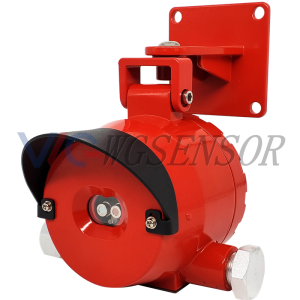Fire detectors are essential devices designed to detect the presence of fire or smoke and raise an alarm to prevent potential disasters. Among various types, fixed fire detectors are an integral part of fire safety systems used in both residential and commercial spaces. These detectors operate on different principles to identify the initial signs of a fire and promptly alert occupants or authorities. Here’s a comprehensive guide to fixed fire detectors:
Types of Fixed Fire Detectors:
1. Smoke Detectors:
– Photoelectric Detectors: These utilize light sensors to detect smoke. When smoke enters the chamber, it scatters the light, triggering the alarm.
– Ionization Detectors: Operating on the principle of ionized air, these detectors contain a small amount of radioactive material. When smoke enters, it disrupts the ion flow, activating the alarm.
2. Heat Detectors:
– Rate-of-Rise Detectors: These respond to rapid temperature increases, signaling a fire when the temperature exceeds a predetermined rate.
– Fixed Temperature Detectors: Activated when a specific temperature threshold is reached, indicating a potential fire.
3. Flame Detectors:
– UV, IR, or UV/IR Detectors: Utilize ultraviolet (UV) or infrared (IR) sensors to detect the presence of flames by analyzing their characteristic radiation signatures.
How Fixed Fire Detectors Work:
– Smoke Detectors: They contain sensors that respond to smoke particles or disruptions in the ion flow caused by combustion.
– Heat Detectors: These detectors contain elements that expand or contract with temperature changes, triggering the alarm.
– Flame Detectors: They use specialized sensors to detect the presence of flames by recognizing unique radiation patterns emitted during combustion.
Placement and Maintenance:
– Strategic Locations: Install detectors in areas prone to fire risks, such as kitchens, near potential ignition sources, and escape routes.
– Regular Maintenance: Test detectors periodically, replace batteries (if applicable), and ensure they remain free of dust or debris that might impede their functionality.
Importance of Fixed Fire Detectors:
– Early Detection: Detecting fires in their early stages can prevent significant damage and save lives.
– Timely Response: Immediate alerts allow occupants to evacuate safely and give authorities time to respond swiftly.
– Reducing Losses: Minimizing property damage by enabling quick intervention to contain or extinguish fires.
Conclusion:
Fixed fire detectors are indispensable components of fire safety systems, providing early warnings crucial for safeguarding lives and property. Understanding the types, functionality, and proper maintenance of these detectors is pivotal in ensuring their effectiveness in preventing potential disasters. Regular inspection, strategic placement, and adherence to safety protocols are essential for maximizing their lifesaving potential.
By employing these measures and staying informed about fire detection technology, individuals and establishments can significantly enhance their safety against the threat of fires.


Please contact us for free quotation by form below. We promise the quickest response within 24 hours: